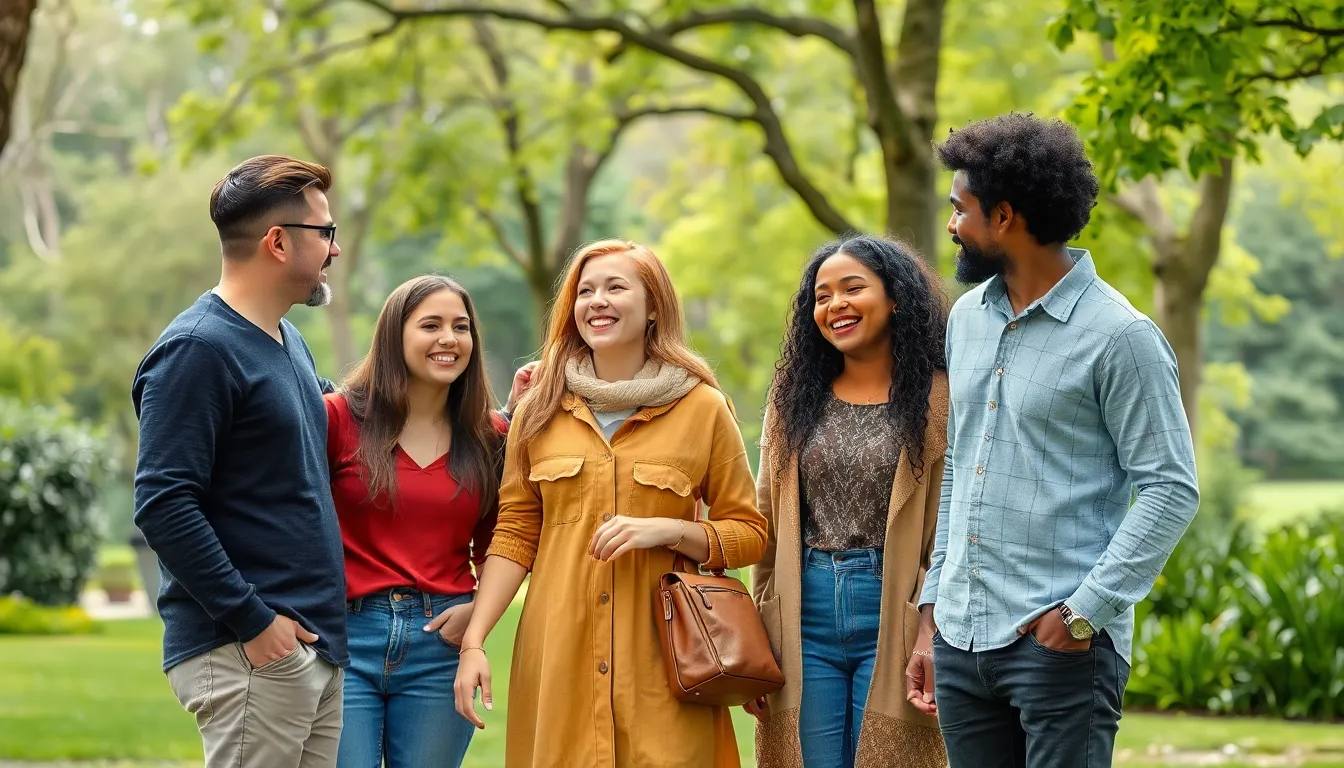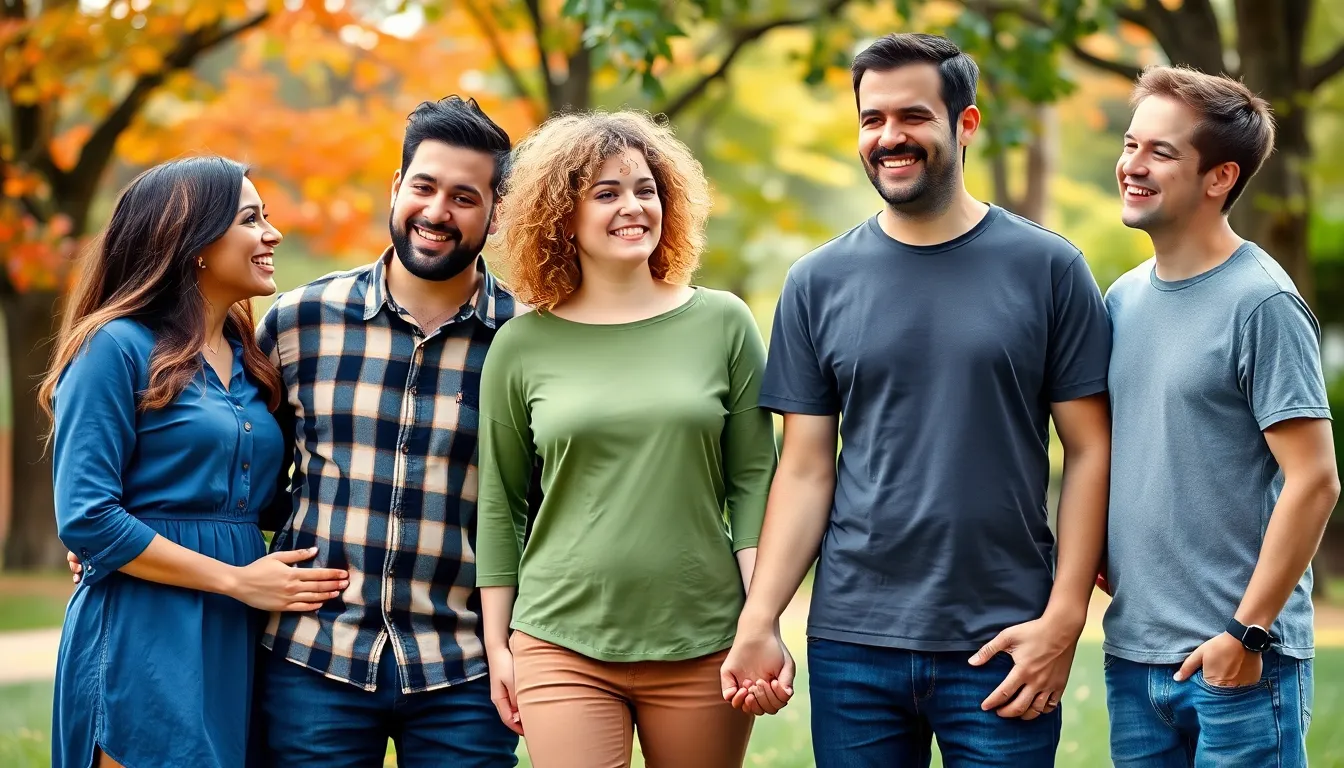Marriage—it’s the ultimate partnership, a lifelong commitment that often comes with a side of confusion and a sprinkle of humor. From the moment the question is popped to the grand “I do,” beliefs surrounding marriage can be as varied as the wedding cake flavors at a reception. Some see it as the pinnacle of love, while others view it as a necessary evil, like doing taxes.
Table of Contents
ToggleHistorical Beliefs Surrounding Marriage
Historical beliefs surrounding marriage highlight its evolution from social contract to personal commitment. Understanding these variations provides insight into current perspectives.
Ancient Perspectives
Ancient societies viewed marriage primarily as a way to establish alliances and secure property. In Mesopotamia, families married daughters not for love but to strengthen ties and ensure economic stability. Similarly, in Ancient Greece, marriage was often a means to produce legitimate heirs, emphasizing lineage over romantic involvement. Families arranged unions, prioritizing duty and societal expectations. In contrast, some cultures sought companionship through marriage. The Romans introduced the concept of the conubium, which allowed for a more personal connection within matrilineal societies.
Religious Influences
Religious beliefs greatly shaped marriage throughout history. Christianity promoted marriage as a sacred institution, emphasizing fidelity and lifelong commitment. Weddings incorporated rituals, symbolizing divine blessing. In Hinduism, marriages represent dharma, intertwining spiritual duty with social obligation. The concept of Saptapadi, or seven steps, exemplifies the spiritual journey of married couples in this tradition. Islam also outlines marriage as a community bond, believing it fulfills half of one’s faith. Each religion’s doctrines reinforced marriage norms, affecting individual and collective behaviors in societies across time.
Contemporary Beliefs Surrounding Marriage

Contemporary views on marriage reflect changing societal dynamics and personal values. Today’s beliefs often diverge from traditional perspectives, emphasizing individual fulfillment and partnership.
Societal Norms
Societal norms shape marriage expectations significantly. Many individuals view marriage as a stepping stone to family formation, while others prioritize personal happiness over traditional milestones. People commonly seek partnerships that emphasize equality and mutual respect. Cohabitation before marriage has become increasingly accepted, demonstrating a shift toward pragmatic approaches. Additionally, societal acceptance of diverse relationship structures like same-sex marriages highlights evolving definitions of love and commitment. These changes indicate a broader acceptance of varied life choices, affirming that marriage can reflect personal rather than societal demands.
Personal Values
Personal values heavily influence marriage beliefs. Some individuals prioritize companionship and emotional support when considering long-term relationships. Others might value financial stability and partnership as essential marriage components. Self-fulfillment often plays a critical role, as many seek partners who encourage growth and shared dreams. Communication capabilities also hold importance; partners striving for open dialogue tend to report higher satisfaction levels. The desire for mutual goals, trust, and respect forms a core aspect of many modern marriages, suggesting that personal values often shape successful partnerships.
Common Misconceptions About Marriage
Misconceptions about marriage can cloud understanding and lead to unrealistic expectations.
Love vs. Commitment
Many people confuse love with commitment. While love represents an emotional bond, commitment embodies a decision to uphold the relationship through challenges. Emotional highs often accompany love, but commitment involves dedication and effort. A relationship based solely on love may falter when difficulties arise. Successful marriages rely on both components, combining passion with the insight to nurture the partnership long-term. Prioritizing commitment provides a sturdy foundation that supports the emotional aspects of love, ensuring couples flourish together.
Gender Roles
Outdated gender roles frequently skew perceptions of marriage. Traditional expectations assign specific duties to husbands and wives, reinforcing restrictive stereotypes. These roles suggest that men should be providers while women take care of the home and family. Reality, however, differs for many couples. Contemporary partnerships exhibit varying dynamics, with both partners often sharing responsibilities. They communicate openly about expectations and support one another’s aspirations. By challenging traditional roles, couples can create a more balanced relationship that fosters equality and mutual respect. Diverse partnerships reflect modern views on marriage, leading to greater understanding and cooperation.
Cultural Variations in Marriage Beliefs
Marriage beliefs vary significantly across cultures, shaped by historical, religious, and societal influences. Exploring these perspectives reveals the intricate tapestry of values and traditions associated with marriage.
Eastern Perspectives
In many Eastern cultures, marriage serves as a vital social contract rooted in family honor and tradition. Families often play a crucial role in arranging marriages, prioritizing compatibility and societal status over personal choice. Hindu weddings, for instance, involve elaborate ceremonies that honor family ties and spirituality. Chinese traditions emphasize ancestor worship, with rituals expressing respect for familial heritage. These perspectives frequently view marriage as a collective commitment, reinforcing bonds between families rather than just individuals. Emotional aspects, while important, often come secondary to fulfilling familial obligations.
Western Perspectives
In contrast, Western perspectives on marriage emphasize individual choice and personal fulfillment. Romantic love often drives the decision to marry, with deep emotional connections considered essential. Partnerships typically reflect ideals of equality, with both spouses sharing responsibilities and decision-making. Wedding ceremonies celebrate personal commitments, showcasing customizations that reflect individual values and aspirations. Societal shifts toward acceptance of diverse relationship structures, including same-sex marriages, further illustrate dynamic views in the West. In this context, marriage transforms into a partnership that prioritizes mutual support, emotional intimacy, and shared aspirations.
The Impact of Technology on Marriage Beliefs
Technology profoundly influences modern marriage beliefs. Online dating has transformed relationship formation. Individuals frequently turn to platforms like Tinder and Bumble, enabling connections beyond geographical limitations. This trend fosters diverse partnerships, allowing people to explore compatibility based on interests and values. Statistics indicate that approximately 30% of couples now meet online, highlighting this significant shift in relationship dynamics.
Social media also plays a critical role in shaping perceptions of marriage. Platforms like Instagram and Facebook serve as forums for sharing relationship milestones, leading to increased pressure to conform to idealized portrayals of love. Couples often curate their lives online, which can distort reality. With people comparing their relationships to others’, unrealistic expectations regarding marriage can emerge. Studies show that exposure to idealized couples can negatively impact relationship satisfaction, making it essential to recognize social media’s influence on evolving marriage beliefs.
Beliefs surrounding marriage continue to evolve as society changes. The shift from traditional views to more contemporary perspectives highlights the importance of personal fulfillment and mutual respect in partnerships. As individuals navigate their relationships, they increasingly prioritize open communication and shared responsibilities.
Cultural variations and technological advancements further enrich the understanding of marriage, showcasing its dynamic nature across different societies. By challenging outdated norms and embracing diverse beliefs, couples can cultivate relationships that reflect their values. Ultimately, the journey of marriage remains a personal and unique experience shaped by individual choices and societal influences.




